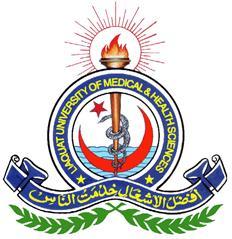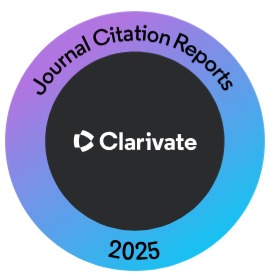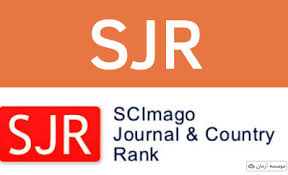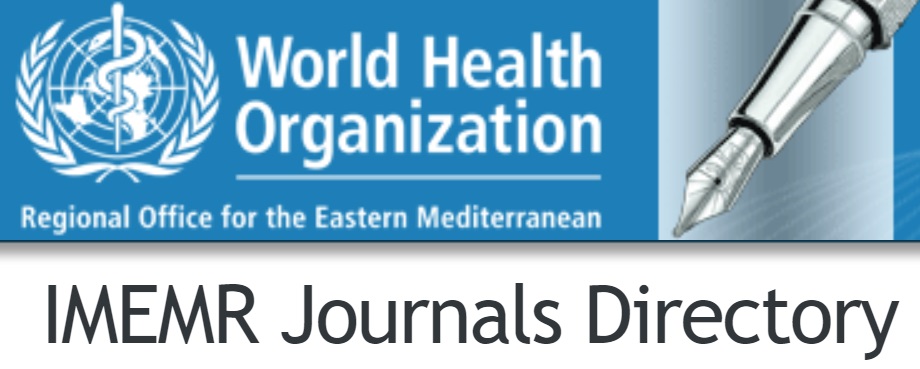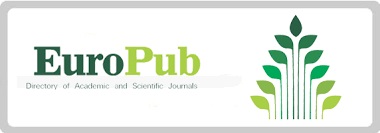Impact of Number of Prenatal Visits on Breastfeeding Practices
Keywords:
Prenatal visits, antenatal care, breastfeeding practices, lactation, exclusive breastfeeding, frequency of ANCAbstract
OBJECTIVE: To determine the impact of several prenatal visits on breastfeeding practices during the first six months of infant life.
METHODOLOGY: This prospective cohort study was conducted in Darul-sehat Hospital Karachi from August 2021 to July 2022 among pregnant females (36-40 weeks of gestation) regardless of their parity. Multiple pregnancy, intrauterine fetal death and medical disorders were excluded. A Convenient Non-probability sampling technique is used for the selection of participants. Participants were divided into three groups according to their number of prenatal visits. <4, 4-8, >8 and followed three times after childbirth to assess their breastfeeding practices. The first follow-up was done within 48 hours of delivery, the second at three months, and the third after six months of delivery. Each visit is assessed for three breastfeeding practices: exclusive, mixed, or bottle feeding. SPSS version 23 was used for analysis.
RESULTS: Two hundred ten participants were interviewed. 78.6% were well-informed about breastfeeding during antenatal visits. Mean antenatal clinic visits of studied samples were 6 (6 -8).7.1% were found with less than four antenatal visits, 68.1% with 4-8 visits, and only 24.8% had more than eight antenatal clinic visits. The percentage of exclusive feeding is highest in group 3 (>8 visits) i,e; 52.3%, followed by 43% in 4-8 visits and lowest at 4.7% in < 4 antenatal clinic visits samples.
CONCLUSION: More antenatal visits favorably influence BF practices regarding the commencement and continuation of breastfeeding.
References
Organization WH. Complementary feeding: report of the global consultation, and summary of guiding principles for complementary feeding of the breastfed child. 2022. Available from: https://www.who.int/publications/i/item/924154614X
Organization WH, United Nations Children's Fund. Global strategy for infant and young child feeding: World Health Organization; 2003. Available from: https://www.who.int/publications/i/item/9241562218
Perez-Escamilla R, Martinez JL, Segura-Perez S. Impact of the baby-friendly hospital initiative on breastfeeding and child health outcomes: a systematic review. Matern Child Nutr. 2016; 12(3): 402-417. doi: 10.1111/mcn.12294.
Abdulla F, Hossain MM, Karimuzzaman M, Ali M, Rahman A. Likelihood of infectious diseases due to lack of exclusive breastfeeding among infants in Bangladesh. PLoS One. 2022 Feb 16; 17(2): e0263890. doi: 10.1371/ journal.pone.0263890.
Saeed OB, Haile ZT, Chertok IA. Association between exclusive breastfeeding and infant health outcomes in Pakistan. J Pediatr Nurs. 2020 Jan-Feb; 50: e62-e68. doi: 10.1016/j.pedn.2019.12.004.
Riaz A, Bhamani S, Ahmed S, Umrani F, Jakhro S, Qureshi AK et al. Barriers and facilitators to exclusive breastfeeding in rural Pakistan: a qualitative exploratory study. Int Breastfeed J. 2022; 17: 1-8. doi: 10.1186/s13006 -022-00495-4.
Gupta A, Arora V. The state of the world's breastfeeding South Saia Report; Tracking implementation of the Global Strategy for infant and young child field. 2007. Available from: https://www.worldbreastfeedingtrends.org/uploads/resources/document/wbti-south-asia-report-2007.pdf.
Alebel A, Tesma C, Temesgen B, Ferede A, Kibret GD. Exclusive breastfeeding practice in Ethiopia and its association with antenatal care and institutional delivery: a systematic review and meta-analysis. Int Breastfeed J. 2018; 13(1): 1-2. doi: 10.1186/s13006-018-0173-x.
Khasawneh W, Kheirallah K, Mazin M, Abdulnabi S. Knowledge, attitude, motivation and planning of breastfeeding: a cross-sectional study among Jordanian women. Int Breastfeed J. 2020; 15(1): 60. doi: 10.1186/s13006 -020-00303-x.
Nishimura H, Krupp K, Gowda S, Srinivas V, Arun A, Madhivanan P. Determinants of exclusive breastfeeding in rural South India. Int Breastfeed J. 2018; 13: 40. doi: 10.1186/s13006-018-0178-5.
Habtewold TD, Sharew NT, Alemu SM. Evidence on the effect of gender of newborn, antenatal care and postnatal care on breastfeeding practices in Ethiopia: a meta-analysis and meta-regression analysis of observational studies. BMJ open. 2019 May 30; 9(5): e023956. doi: 10.1136/bmjopen-2018-023956.
Holla-Bhar R, Iellamo A, Gupta A, Smith JP, Dadhich JP. Investing in breastfeeding– the world breastfeeding costing initiative. Int Breastfeed J. 2015; 10: 8. doi: 10.1186/s13006-015-0032-y.
Organization WH. WHO Recommendations on Antenatal Care for a Positive Pregnancy Experience. November 28 2016. Available from: https://www.who.int/publications/ i/item/9789241549912
Ansari S, Abedi P, Hasanpoor S, Bani S. The effect of interventional program on breastfeeding self-efficacy and duration of exclusive breastfeeding in pregnant women in Ahvaz, Iran. Int Sch Res Notices. 2014; 2014: 510793. doi: 10.1155/2014/510793.
Davis R. does prenatal breastfeeding education impact exclusive breastfeeding in the hospital? An examination of prenatal classes, self-efficacy, previous experience, hospital practices, race, and intention as contributing factors. Master Degree Thesis: University of North Carolina 2013. Available from: https://cdr.lib.unc.edu/concern/masters _papers /4j03d182d
Girish HO, Acharya A, Kumar A, Venugopalan PP, Sarada Prabhakaran RK. Knowledge and practices of breastfeeding among antenatal mothers at a teaching hospital at Kannur, Kerala: A cross-sectional study. J Evol Med Dent Sci. 2013; 2(46): 8996-9001.
Brockway M, Benzies K, Hayden KA. Interventions to improve breastfeeding self-efficacy and resultant breastfeeding rates: a systematic review and meta-analysis. J Hum Lactation. 2017; 33(3): 486-99. doi:10.1177/ 0890334417707957.
Piro SS, Ahmed HM. Impacts of antenatal nursing interventions on mothers' breastfeeding self-efficacy: an experimental study. BMC Pregnancy Childbirth. 2020; 20: 19. doi: 10.1186/s12884-019-2701-0.
Campos AP, Hawkins SS. The Association Between Maternal Employment and Breastfeeding Duration With Household Income in Mexico. J Hum Lactation. 2022 Nov; 38(4): 749-759. doi: 10.1177/08903344211072495. Epub 2022 Feb 9.
Babakazo P, Donnen P, Akilimali P, Ali NMM, Okitolonda E. Predictors of discontinuing exclusive breastfeeding before six months among mothers in Kinshasa: a prospective study. Int Breastfeed J. 2015; 10(1): 19. doi: 10.1186/s13006-015-0044-7.
Meedya S, Fahy K, Kable A. Factors that positively influence breastfeeding duration to 6 months: a literature review. Women Birth. 2010; 23(4): 135-45. doi: 10.1016/j.wombi.2010.02.002. Epub 2010 Mar 17.
Arif S, Khan H, Aslam M, Farooq M. Factors influencing exclusive breastfeeding duration in Pakistan: a population-based cross-sectional study. BMC Public Health. 2021; 21: 1998. doi: 10.1186/s12889-021-12075-y.
Cardoso A, AP ES, Marín H. Pregnant women's knowledge gaps about breastfeeding in northern Portugal. Open J Obstet Gynecol. 2017; 7(03): 376. doi: 10.4236/ojog.2017.73039.
Mohapatra I, Roy A. Breastfeeding awareness and perception among antenatal mothers. A cross-sectional study in urban slum population of Bhubaneswar, Odisha. J Educ Health Promot. 2018; 7: 60. doi: 10.4103/jehp.jehp_98_17.
Kumari V. Breastfeeding Knowledge, attitudes and practices of postnatal mother of Patna district. J Pharmacognosy Phytochemistry. 2018; SP 1: 918-924.
Akter S, Tasnim S, Bhuiyan MMA, Hasan A. A Study on postpartum breast problems of mothers attending at lactation management center (LMC). Bangladesh Med J. 2016; 44(3): 136. doi: 10.3329/bmj.v44i3.27372.
Downloads
Published
How to Cite
Issue
Section
License
Copyright (c) 2023 Journal of Liaquat University of Medical & Health Sciences

This work is licensed under a Creative Commons Attribution-NonCommercial-ShareAlike 4.0 International License.
Submission of a manuscript to the journal implies that all authors have read and agreed to the content of the undertaking form or the Terms and Conditions.
When an article is accepted for publication, the author(s) retain the copyright and are required to grant the publisher the right of first publication and other non-exclusive publishing rights to JLUMHS.
Articles published in the Journal of Liaquat University of Medical & health sciences are open access articles under a Creative Commons Attribution-Noncommercial - Share Alike 4.0 License. This license permits use, distribution and reproduction in any medium; provided the original work is properly cited and initial publication in this journal. This is in accordance with the BOAI definition of open access. In addition to that users are allowed to remix, tweak and build upon the work non-commercially as long as appropriate credit is given and the new creations are licensed under the identical terms. Or, in certain cases it can be stated that all articles and content there in are published under creative commons license unless stated otherwise.


